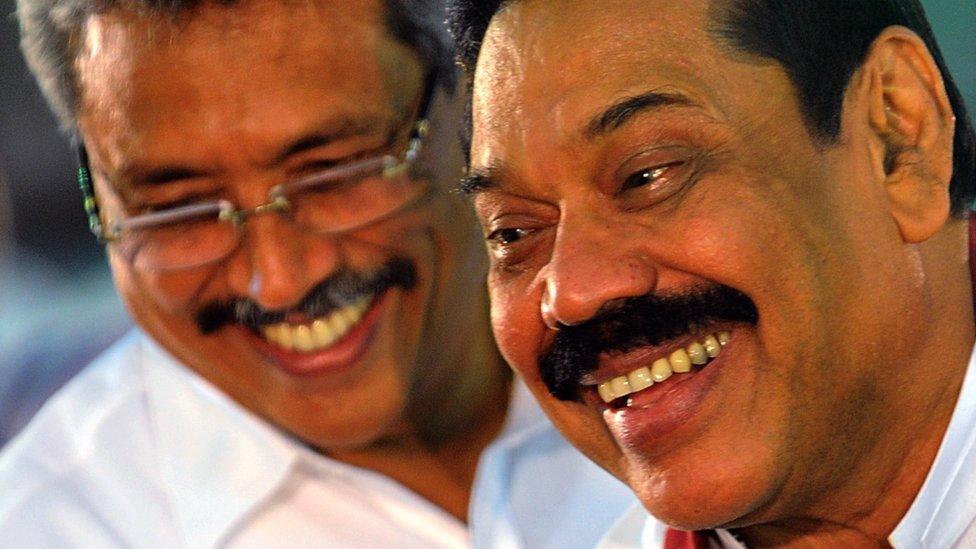Sri Lanka seeks way forward after president quits
- Published
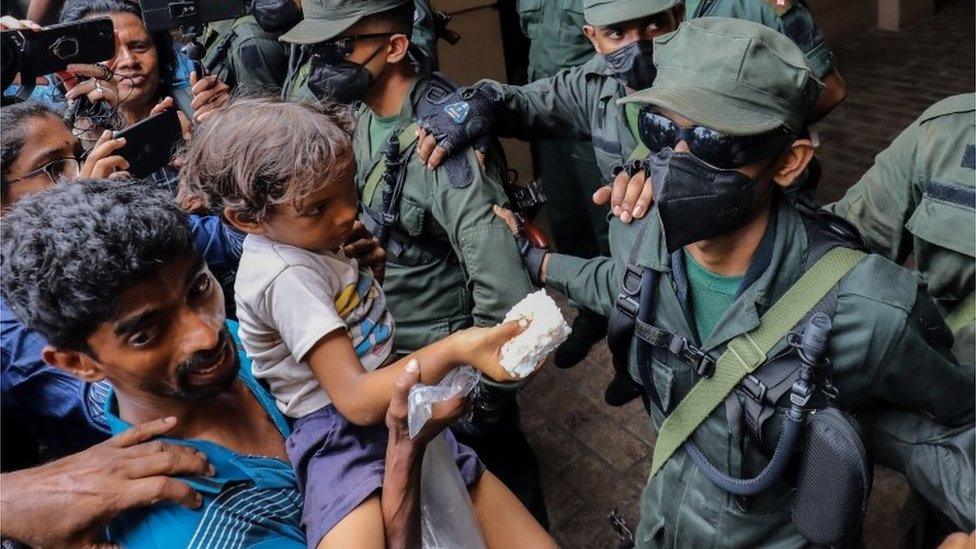
People offered food to soldiers in Colombo to celebrate Mr Rajapaksa's departure
Sri Lanka is seeking a way out of political and economic chaos after its President Gotabaya Rajapaksa resigned and fled the country.
Prime Minister Ranil Wickremesinghe was sworn in as temporary leader on Friday and has the ruling party's backing to take the role permanently.
This makes him the favourite when a new president is chosen next week, but may prove unacceptable to protesters.
Mr Rajapaksa fled to Singapore, sparking celebrations in the street.
He and his family have been blamed for a deep economic crisis, with Sri Lankans facing acute shortages of food, fuel and other basic supplies.
Businesses and shops reopened in the capital, Colombo, on Friday morning after a curfew was lifted, but soldiers could still be seen on major roads.
At the same time, thousands of people were back in long queues outside petrol stations.
The process of parliament electing a new president began on Saturday, with MPs expected to take a vote on 20 July. The initial formal meeting lasted just 13 minutes, with a letter being read out from Mr Rajapaska defending his record.
"It is a matter of personal satisfaction for me that I was able to protect our people from the pandemic despite the economic crisis we were already facing," he wrote.
According to news agency AFP, more than 16,500 people died during the pandemic in Sri Lanka, while the country's official foreign exchange reserves dropped from $7.5bn (£6.3bn) to just $1m during his tenure.
After being sworn in as interim leader, Mr Wickremesinghe promised to act quickly to put a democratically elected president in place.
"I will take immediate steps to establish the rule of law and peace in the country. I accept 100% the right to peaceful protests. But some are trying to do acts of sabotage," he said.
Given the governing party has a majority, MPs are thought likely to back Mr Wickremesinghe, who has close links with the Rajapaksa family.
But whether Sri Lanka's public would accept this is another matter, because Mr Wickremesinghe's resignation as PM was a key demand of protesters.
Earlier this week, crowds stormed the former prime minister's compound, clashing with security forces.
A demonstrator, Manuri Pabasari, told the BBC at the time that a protest rally against Ranil Wickremesinghe was expected in the coming days.
"He has no people's mandate [and] is a well known Rajapaksa supporter," she added. "I mean the new president and the new prime minister should be not a Rajapaksa supporter."
Meanwhile, Singapore says ousted president Rajapaksa did not ask for political asylum when he arrived there.
The former president, who arrived with his wife and two bodyguards, no longer has legal immunity as a head of state and his position is now more precarious as he tries to find a safe country to shelter in.
He is expected to stay in Singapore for some time before possibly moving to the United Arab Emirates, Sri Lankan security sources told AFP news agency.

Sri Lanka: The basics
Sri Lanka is an island nation off southern India: It won independence from British rule in 1948. Three ethnic groups - Sinhalese, Tamil and Muslim - make up 99% of the country's 22 million population.
One family of brothers has dominated for years: Mahinda Rajapaksa became a hero among the majority Sinhalese in 2009 when his government defeated Tamil separatist rebels after years of bitter and bloody civil war. His brother Gotabaya, who was defence secretary at the time and later became president, fled the country after mass unrest.
Presidential powers: The president is the head of state, government and the military in Sri Lanka, but does share a lot of executive responsibilities with the prime minister, who heads up the ruling party in parliament.
Now an economic crisis has led to fury on the streets: Soaring inflation has meant some foods, medication and fuel are in short supply, there are rolling blackouts and ordinary people have taken to the streets in anger, with many blaming the Rajapaksa family and their government for the situation.
Watch: How the storming of Sri Lanka's PM's office unfolded
- Published20 July 2022
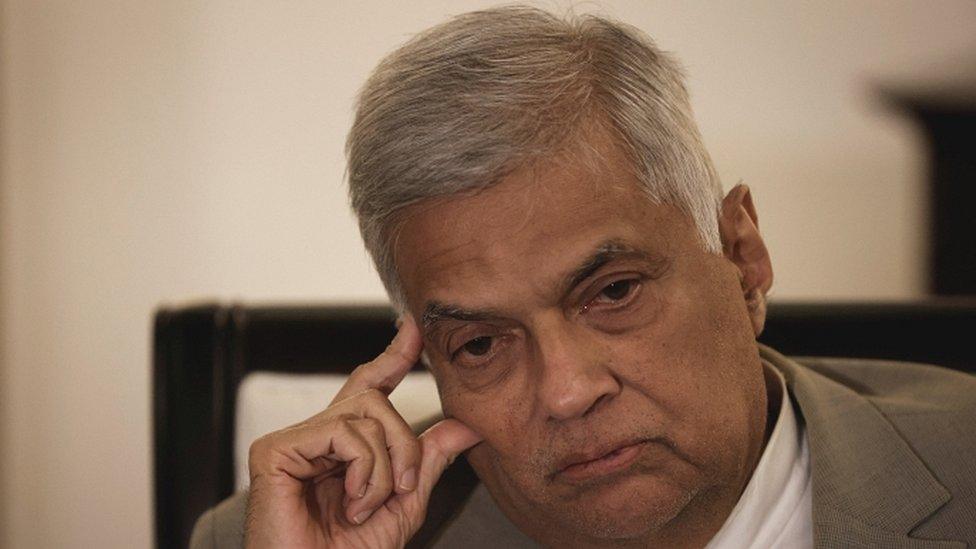
- Published13 July 2022
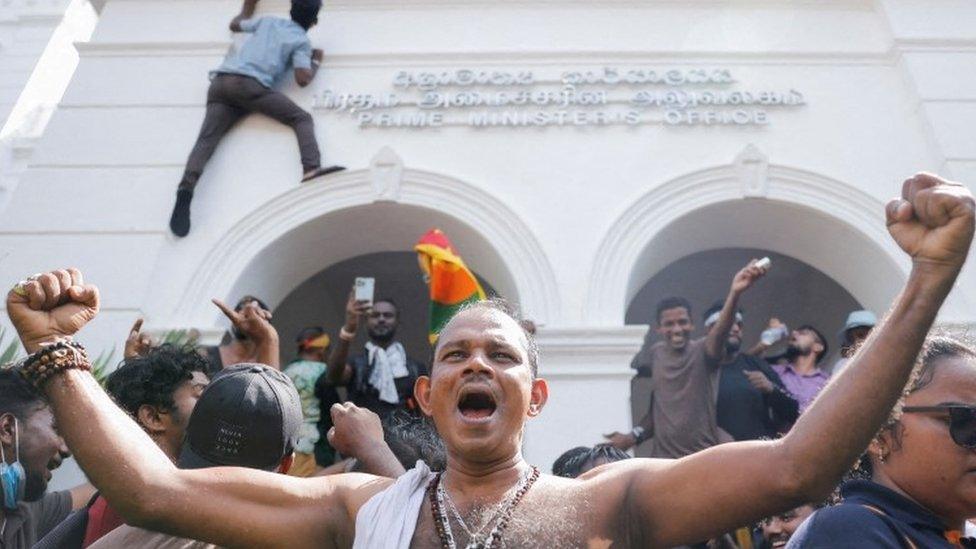
- Published12 July 2022
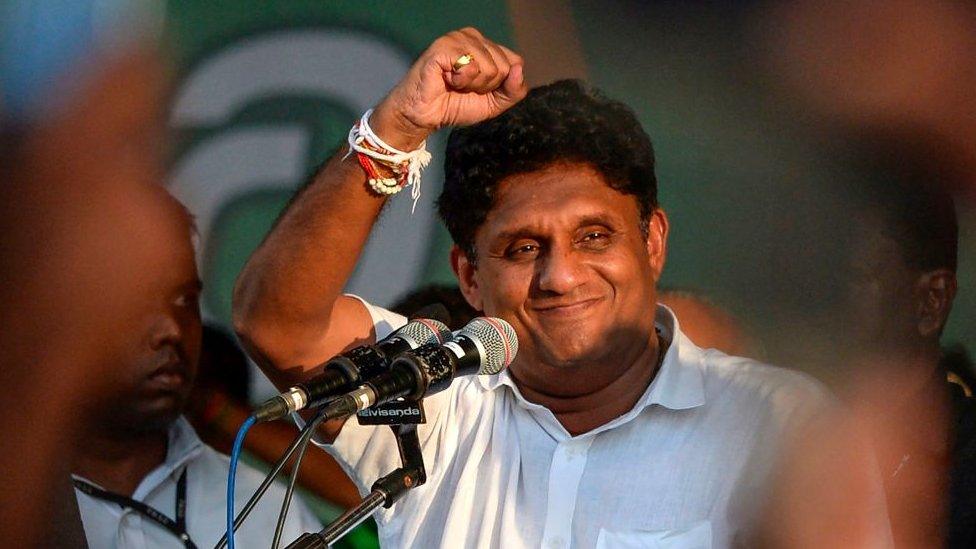
- Published29 March 2023
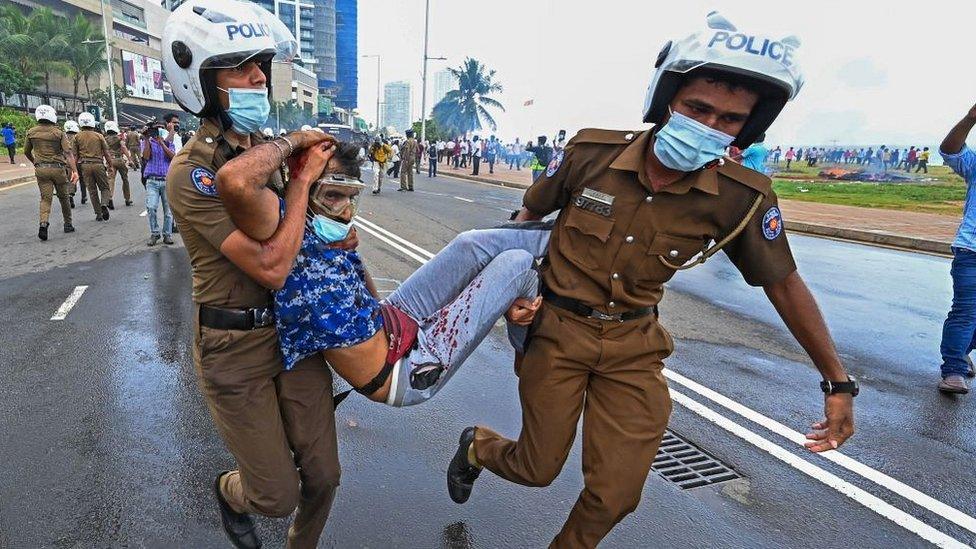
- Published10 July 2022
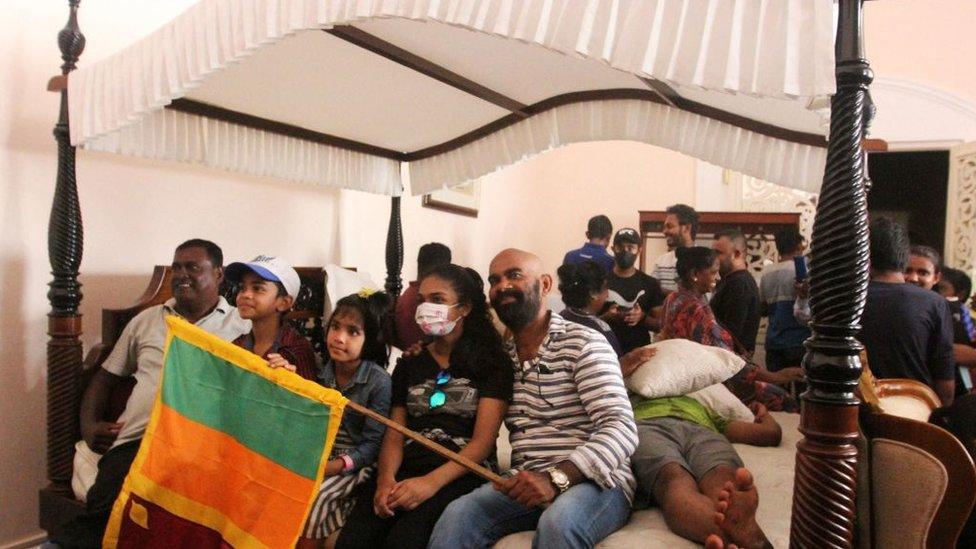
- Published13 July 2022
